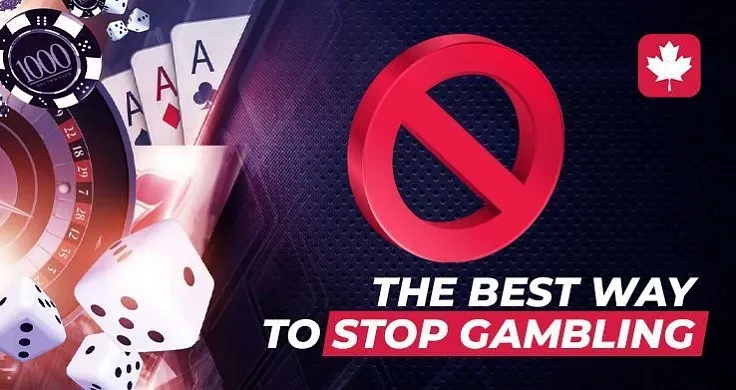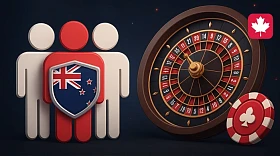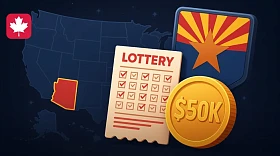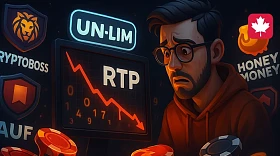
The Best way to stop gambling
Gambling addictions can be challenging to control. These 7 suggestions provide consumers easy solutions to lessen their propensity towards gambling.
Ten million people in the United States, or around 2.6 percent of the population, have a gambling issue and have dealt with the negative effects of gambling addiction. According to reports from the National Center for Responsible Gaming, gambling-related issues are considerably more widespread in young adults (6–9%), and these behaviors frequently coexist with drinking. These seven suggestions can help you or a loved one stop gambling.
Recognize the issue

Something that you don't understand can't be fixed. You must educate yourself on the subject and accept that you have a gambling addiction in order to stop gambling from your life.
The American Psychiatric Association classifies addictions brought on by alcohol and narcotics and gambling as mental health disorders. If any of the following applies to you:
-
The wealthy must wager more money in their games of chance.
-
Feelings of agitation or restlessness when not gambling
-
made numerous attempts to stop gambling, all in vain.
-
You've become utterly fixated with gambling
-
I noticed you use gambling to relieve tension
-
Gambling on more to "make up for"
-
lied about gambling to loved ones, coworkers, and friends
-
strained or broken relationships due to gambling
-
required financial assistance
When you review the signs of a gambling disorder, be honest with yourself. For even better insight, ask a loved one what they think of your gaming. Stop rejecting it and start seeing the harm gambling has done to your life.
Join a group for support
You can ask a support group for help now that you are aware of the issue. Support groups are institutions run by persons with comparable histories and experiences. Support groups are free to try out in person or in internet chat rooms, notwithstanding the lack of expert interventions.
One support network created especially for those with gambling issues is Gamblers Anonymous.
The organization is built on the well-known 12-step methodology utilized by other support groups, such as Alcoholics Anonymous or Narcotics Anonymous.
You can call the National Council on Problem Gambling's gambling helpline for more details on support groups for gamblers. They provide voice and text support for those who have gambling problems and can direct you to beneficial support groups to help you cope with the challenges of gambling addiction.
Avoid being tempted

Gambling is a temptation, but realizing that it is an addiction allows you to employ relapse prevention and addiction recovery techniques. A person in recovery can prevent a setback by avoiding persons, places, and activities related to gambling.
You can prevent the ideas and emotions that favor gambling by staying away from these triggers.
So, if passing a casino after work makes you want to gamble, find another route. Consider watching something different if participating in sports causes you to feel the want to wager. Discard your credit cards, and leave the checkbook to your spouse.
Although it may seem inconvenient, you must recognize and stay away from your triggers, just as someone who has a drinking problem shouldn't enter a bar. To lower the danger of gambling, work with a loved one to create a list of your triggers and discover techniques to resist the temptations.
Delay your gambling

Cravings are a common feature of addictions. Strong drives to carry out the desired activity are known as cravings. As a gambler, you could experience desires to contact your bookie, visit a casino, collect your paycheck, or engage in other gambling-related actions.
When you are experiencing a severe craving, it seems as though it will never end. Despite this, it won't. Every craving has a start, middle, and end. Therefore, you can continue recuperation as long as you can put off gambling.
Paying attention to your cravings—what they feel like, what you think about while you have them, and how long they often last—is a great strategy to deal with this problem.
Seek Help for Gambling Addiction

Consider getting professional gambling addiction help as soon as possible if your issue is serious. The choice between living in financial stability or uncertainty may depend on receiving professional treatment from a mental health or addiction specialist.
Professional treatment techniques can help you improve the skills you already have while also teaching you how to avoid gambling. The only thing preventing you from seeking professional counseling or therapy is your reluctance. Even better, you can attend a support group while getting professional assistance.





tickscollar All this bullshit was invented to squeeze out the last money. It used to be easier - bet on red, win or lose. And now some chickens are running, airplanes are flying... Circus.


xSuiZ The article is fire! Everything was laid out according to the facts. Drake is not a ludomaniac, he is a walking advertisement. And while the suckers believe in his "curse", Stake rakes in the money. Beautiful, you can't say anything. I've been riding a steak myself for a year now, I threw in crypto and generally don't give a about all the blocking.


Leoak Finally a good article on NC! I've been playing them since the very beginning, since the first Deadwood. Yes, their dispersion is crazy, you can lose a deposit in 100 spins. But when he pours ... It's worth it. In Mental x15k I caught, I still remember this spin. The whole point is in their x-mechanics, they really change the game, and not just for show.



tealblossom 2 minutes to respond? Yes, this is a dream! Otherwise, while you wait for these operators, you will already want to play. It's high time!











































